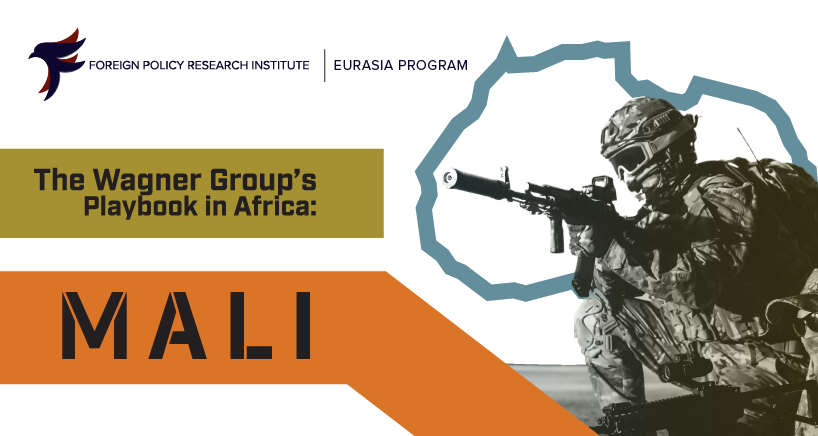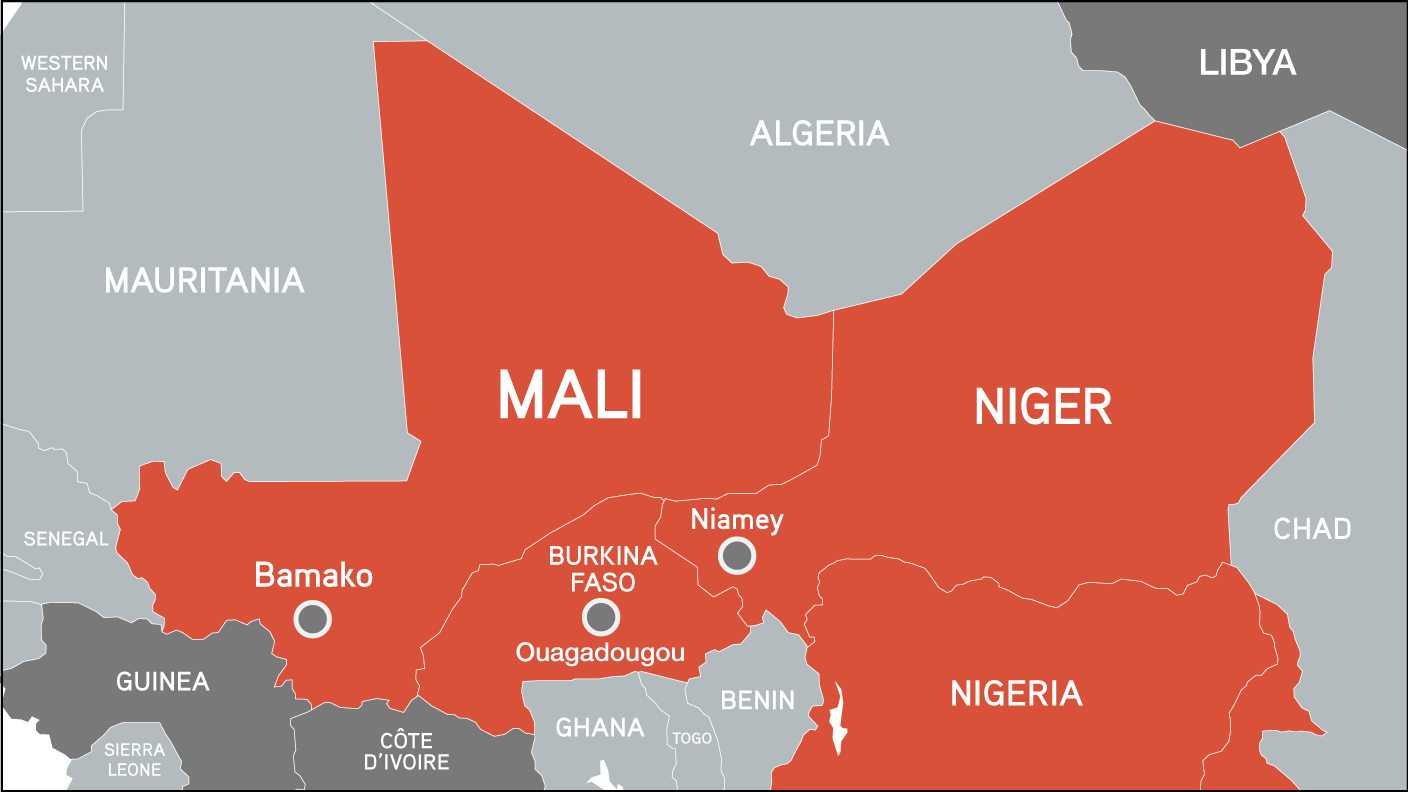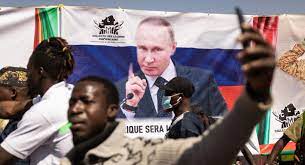On 29 September 2022, IPIS organised a panel discussion on the implications of the Ukraine invasion for Russia-Africa relations. The discussion touched upon shifting power balances, the role of Russian mercenaries and the impact of the war in Ukraine on the African and global diamond industry. Nowhere are these evolutions better reflected than in the Sahel, a region stretching from Senegal to Eritrea. Since the IPIS event, there have been some sweeping new developments, including a coup in Burkina Faso, the end of the UN Mission in Mali as well as the increase of Russian military support to the Malian government. These developments highlight among others that the West faces serious problems of legitimacy in the region, and have caused Western countries to start rethinking their engagements.
The Sahel, due to the upsurge in terrorist attacks has often been viewed from a narrow security angle, which fails to do justice to the region’s various challenges and opportunities. For instance, the Sahel is home to one of the fastest-growing populations, and hence labour forces, on the globe. This demographic growth runs parallel to the demand for food at a time when soil erosion and desertification seriously threaten the agricultural sector. This could result in mass hunger as well as unemployment as it is one of the region’s largest employers.
This intertwining of demographic, climatic and economic factors provides the ideal recruiting ground for armed groups, especially for those in the Central Sahel (Burkina Faso, Mali and Niger). In 2013, the spread of violence in northern Mali, spurred by the collapse of the Libyan state, caused France to intervene with Operation Serval, followed a year later by Operation Barkhane. While it achieved some initial successes, the latter is now widely regarded as a failure, with violence increasing year after year. Ultimately, French President Macron announced the end of the operation in November 2022.
Western interests vs. local security
Despite Western involvement in anti-terrorist operations in the Sahel for over a decade, the local security pretext hides an agenda of national interests. For instance, the US continues its war on terror by fighting Al Qaeda in the Islamic Maghreb and the Islamic State Sahel Province while this approach does not necessarily address local grievances. As for the German contribution of troops to Mali and the deployment of Italian troops in Niger, these endeavours can be seen as an attempt to halt irregular migration through the Sahel, which is a popular conduit to Europe. Finally, France relies heavily on the uranium supply from Niger to run its fifty-six nuclear power plants at home.
The West’s failure to provide security combined with its pursuit of domestic interests has created bad blood among local elites and citizens in recent years. Especially France, historically the region’s main security partner, has been accused of inadequacy and self-enrichment with former Malian interim-president Abdoulaye Maïga denouncing its “neo-colonial, condescending, paternalistic and revanchist practices”. The open criticism of France on the military junta, its dissatisfaction with the security situation and Mali’s rapprochement to Moscow eventually led to the departure of French troops from Mali.
During the IPIS panel discussion of September last year, it was highlighted that social media play a major role in cultivating anti-French narratives in the region. While several claims on the internet can be dismissed as propaganda, there is a kernel of truth to the rhetoric, which explains why it gains traction with the general public. For example, the intertwinement of French industry with the economic fabric of the Sahel, its double standards in dealing with military juntas, and its historical involvement in regime changes foment unfounded online rumours that France collaborates with jihadis to justify its military presence.
Shifting alliances
The waning influence of the West presents opportunities for the G5 Sahel countries (Burkina Faso, Chad, Mali, Mauretania and Niger) to seek alternative partners. One partner that has been quietly expanding its economic footprint is China, which employs a strategic mix of economic and political ‘win-win situations’, the latter meaning it won’t interfere in partner countries’ internal affairs. However, China faces a conundrum as it primarily pursues economic interests while structural insecurity demands a greater military role in order to protect its workers and economic projects. As a result, China contributed $45.56 million to the Sahel Joint Forces and delivers troops to UN Peacekeeping missions.
More recently, Russia boosted its image in both Mali and Burkina Faso after delivering military hardware and conducting intensive pro-Russian social media campaigns. The Wagner mercenary group in particular fuels anti-Western rhetoric with its leader Yevgeny Prigozhin stating that: “All these so-called coups are due to the West trying to govern states and suppress their national priorities, […].” However, the question remains whether, given its dubious record in previous pacification missions, Wagner will succeed where Western forces have failed. For instance, in Cabo Delgado, Mozambique, the mercenary group incurred heavy losses due to a lack of terrain knowledge and a poor understanding of the conflict’s socio-economic origins.
Finally, Turkey and the Gulf States use cultural exchange to target countries with large Muslim populations to increase their influence in the region. Turkey in particular casts itself as the guardian of Islamic faith by building mosques, knowledge institutions and healthcare centres. Nevertheless, beyond fostering religious ties these efforts open new markets and project Turkish power in the Islamic world. Turkey’s soft power as yet does not have the same status as China’s economic power or Russia’s hybrid military support, but the case highlights the fact that the Sahel has no shortage of new partners.
Changing security realities on the ground
The geopolitical shifts described above have day-to-day implications for local communities, which bear the brunt of the conflict, with an estimated 2.7 million people displaced and 1.6 million children malnourished. In addition, civilians are often caught between warring parties, which, according to a recent study, causes eight civilian deaths per day in the Central Sahel. Western coalition partners are sometimes accused of contributing to civilian suffering. For instance, the UN mission in Mali accused France of bombing a wedding party in the Malian village of Bounty. Paris strongly denied these accusations claiming it was a jihadi stronghold and questioning the methodology used in the report.
Among the main contributors to the violence are the many private military companies (PMCs) attracted to the conflict. In particular, the arrival of Wagner Group mercenaries is leading to increasing human rights violations with a recent UN report accusing Wagner of indiscriminately killing 500 civilians in Moura, Mali. PMCs are no adequate substitutes for national armies not the least because they face little to no accountability for their actions and thus tend to commit human rights abuses with impunity, as Wagner’s track record in countries like the Central African Republic (CAR), Syria and Mali confirms.
Besides committing human rights violations, Wagner enriches itself by exploiting natural resources in the Central Sahel. As money is often scarce in poor and conflict-ridden regions, PMCs are frequently paid in natural resources or mining concessions. Wagner is known to use subsidiaries such as Lobaye Invest Sarlu, Meroe Gold and M-Invest to operate concessions in Sudan and the CAR. Although these entities are currently on the EU sanctions list, there is little doubt that the same pattern will repeat itself in Mali and Burkina Faso where Wagner increasingly exerts influence. This is all the more likely as Russia has every interest in maintaining this military aid for raw materials exchange arrangement. It has proven to be a low-cost model to expand its geostrategic influence, which is particularly helpful in light of its protracted war in Ukraine and the Western sanctions on its economy.
Looking forward
Developments in recent months have forced Western governments to rethink their engagements. The security interests of France, and by extension the entire EU, make it unlikely that foreign troops will withdraw completely from the region as has already been proven by the recent regrouping of French troops in neighbouring Niger. Abandoning the region would most likely lead to territorial gains by extremist groups, increase the strategic influence of China and Russia, and cause increased migration towards Europe. However, as military solutions have failed, the question remains how Western policies towards the Sahel can be reconfigured.
President Macron already announced that: “it was the end of France’s operations in the Sahel in their current form”.Meanwhile, the UK’s new Sahel humanitarian fund claims to be “informed by the realities on the ground, and empowering local organisations[…]”. Most recently, the Belgian government announced a new Sahel strategy that might prove to be a template for future Western engagement. The strategy adopts a ‘3D approach’ meaning it is designed to integrate the dimensions of Defence, Development and Diplomacy. While this type of framework is not a novelty and it is too embryonic to warrant in-depth analysis at this point in time, it should aim to provide tangible benefits for communities that bear the brunt of the violence in one of the globe’s geostrategic hotspots.
Photo: Convoy of Operation Barkhane leaving Mali, near the border with Niger. ©ADJ Anthony Thomas-Trophime – Armée de Terre française
Further reading




All articles and other news items referenced in this briefing come from third party media sources. Not being the author, IPIS is not responsible for the content of the news items or articles contained or referred to in this briefing.

This briefing was produced with the financial assistance of the European Union. The contents of the editorial is the sole responsibility of IPIS and can under no circumstances be regarded as reflecting the position of the European Union.

